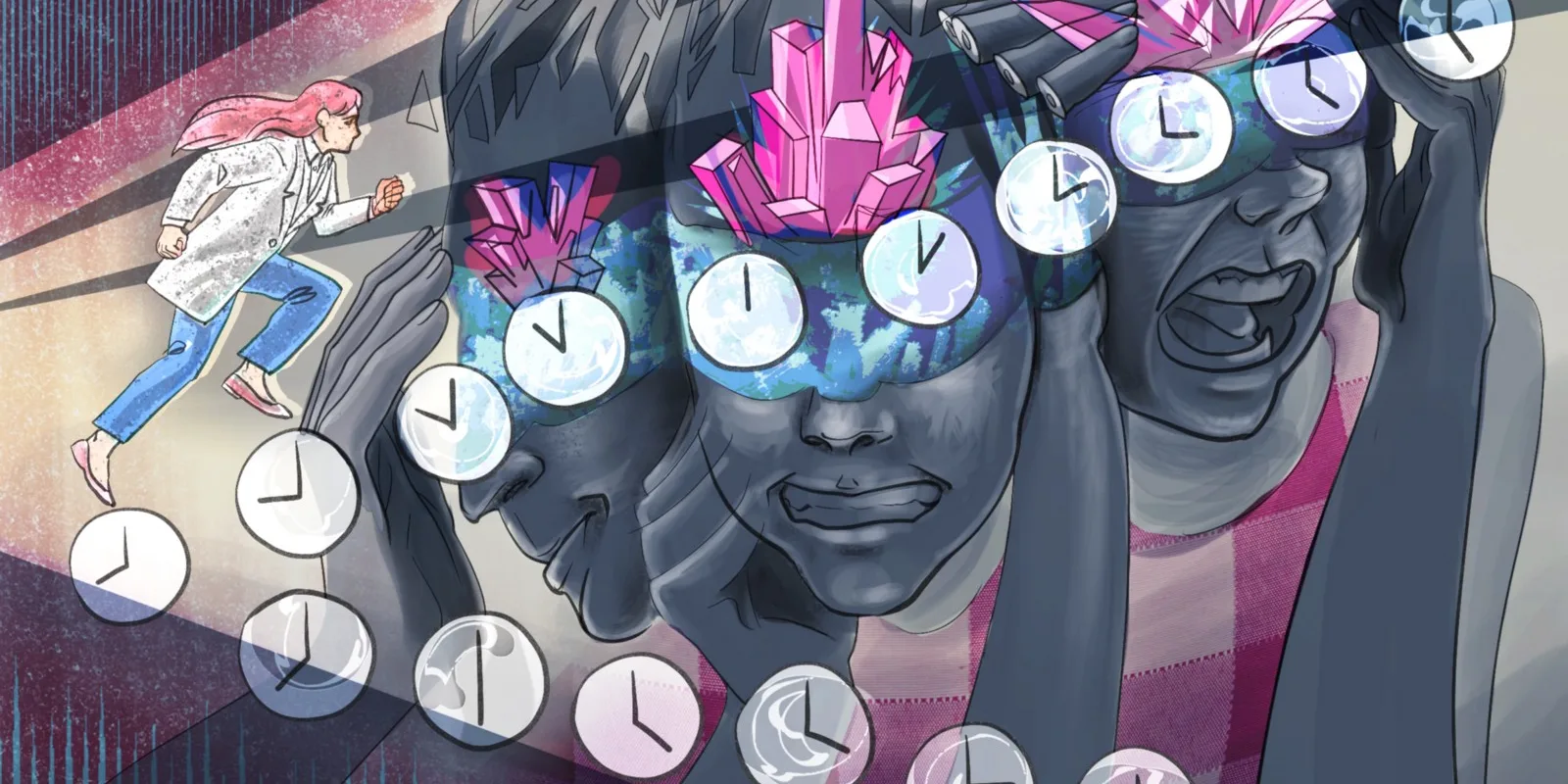
I am going to tell you about the first time I knew for certain that a patient had suffered serious harm because of something I did.
Mr. X was a very ill young man. He had a genetic disorder that had put him in and out of the hospital for much of his young life, and at some point, he’d developed an opiate addiction to go along with his chronic pain. I was an intern on the team that cared for him during one of his many hospitalizations. By that point, he’d signed a contract outlining his pain management plan in detail, to the hour and the milligram, and we were not to interfere with this aspect of his treatment.
Every day when we’d go into his room, he’d report pain in some part of his body. The body part changed every day. His arm, his leg, his side, his stomach. We’d nod sympathetically and remind him about the pain contract. He’d nod too, and sigh, and sink bleakly back into the tangle of blankets on his hospital bed.
One day the pain he reported was in his head. We nodded and murmured sympathetically. The next day the pain was still in his head. It was there the next day, too. We kept murmuring, nodding, and reminding him about the pain contract.
That was a day that I was on call. The night was a blur of pages that ranged from the mundane (a forgotten NPO order) to the terrifying (a plummeting hematocrit). I was on my feet throughout the night, and when I finally signed out to the day team and headed out the door, thirty-two hours after I’d entered it, my eyes were bleary and my head was spinning. In my stupor I forgot to forward my pager to the day team, and so of course, with merciless timing, it beeped just as my foot crossed the threshold.
I glanced at the number. It was the nursing unit on Mr. X’s floor. I sighed, turned around, and found a phone in the hallway to answer the page. It was about Mr. X. He had a headache.
I could hear the desperate anger of sleep deprivation in my curt tone. Part of me knew this was wrong, and another part of me didn’t care. “I know he has a headache,” I replied brusquely. “He’s had one for three days. He’s on a pain contract.”
The nurse was quietly persistent. “His platelets are 80,” she reminded me. “Aren’t you going to scan his head?”
I was thunderstruck. This should have occurred to me. On the other hand, nobody on our team of one attending, two PGY2s, and two interns had discussed the possibility of a bleed. Surely the seniors knew what they were up to.
I pressed my doubts into a corner. “He hasn’t had any focal neurologic signs,” I hedged, which was true but not as reassuring as I pretended. “And his hematocrit’s been stable, right?”
“It’s stable,” she affirmed, unconvinced. “So you’re not going to scan him?”
I pushed the doubting voice into a box and sat on it. “When he develops focal neurologic signs, that’s when we’ll scan his head,” I declared with a certainty I did not feel. Then I forwarded my pager, staggered home, and slept like the dead.
The following day on rounds, Mr. X still had a headache. The team nodded and murmured as usual, attending to more pressing matters like his renal function and an unexplained mild fever. In my mind, I heard the nurse’s words on repeat. “Aren’t you going to scan his head?”
As we exited the room, a gaggle of white coats ritualistically gelling our hands, I plucked up my courage to speak. “Can I ask a question?” The team turned to me attentively. “What’s our threshold to scan his head?”
Andy, the PGY-2 on my team, cocked an eyebrow. The attending stroked his mustache. “That’s a good question,” he said. Relief washed over me. My delay had cost nothing. Mr. X would get his head scanned, and it would be fine, the scan would be negative, another useless drop in the endless bucket of scandalously expensive medical care.
“What should make us scan his head?” the attending continued. It was a teaching question.
“Focal neurologic signs?” offered the other intern.
“Very good,” the attending returned. “Does he have any?” We shook our heads. “Should we check?” We nodded our heads. We trooped back into the room. I did a shaky neurologic exam. Mr. X dutifully tracked my fingers, stuck out his tongue, squeezed my hands. He seemed fine.
“How about his hemoglobin?”
It was nine. It had been about that for some time.
“So no scan?” I asked.
“It’s a very good thought,” the attending assured me. “We should keep tracking this.”
I nodded my head and we moved on to the next patient. I still had my doubts — wouldn’t it be rather late to save him from the worst consequences of a brain bleed once it was already big enough to impair his exam? But I pressed them down once again, reassured that the decision was in hands older and wiser than mine.
It was less than an hour later that we got an urgent page from the floor. It was Mr. X. Andy and I raced to his room. What we saw was terrifying. Mr. X opened his mouth to speak to us, but as he was talking his words began to slur, then trailed into gibberish. His right eye deviated crazily. He started listing toward his right side, tongue lolling from his mouth. Andy and I shot each other a look of horror. We activated the stroke pager.
Within seconds there was a flurry of white coats around us. We were superfluous. Mr. X was quickly whisked off: intubated, sedated, and, in astonishingly quick succession, surgically decompressed. That CT scan we hadn’t gotten showed a massive collection of blood, mostly fresh but some congealed, deforming his brain and pushing it relentlessly to the side and out the bottom of his skull.
Andy and I trooped back to the team room in silence. There was nothing to say.
In case you are curious, Mr. X. lived. He spent a solid period of time in the ICU, where I would occasionally drop by his room to stare at his chest as it rose and fell with mechanical intensity, and pray that he would survive. Eventually, he stepped down and then out, presumably to return to his life of periods of relative normalcy punctuated by frequent hospital stays.
I have never forgotten this experience. I hope it has made me a better doctor. I try to take what patients tell me at face value, until or unless I have a clear reason to believe otherwise. I try to apply this equally to all patients, including those with drug addictions or those with complaints that don’t quite fit the classic patterns I expect to see. I have never again been short with a nurse who was trying to tell me something important. While I appreciate the advice of experts and authority figures, I also try to make sure to always think decisions through for myself. These things were the unknowing gift of Mr. X. to all my future patients. I must make sure this gift was not in vain.
The writer is a physician who enjoys reading, writing, and thinking.






